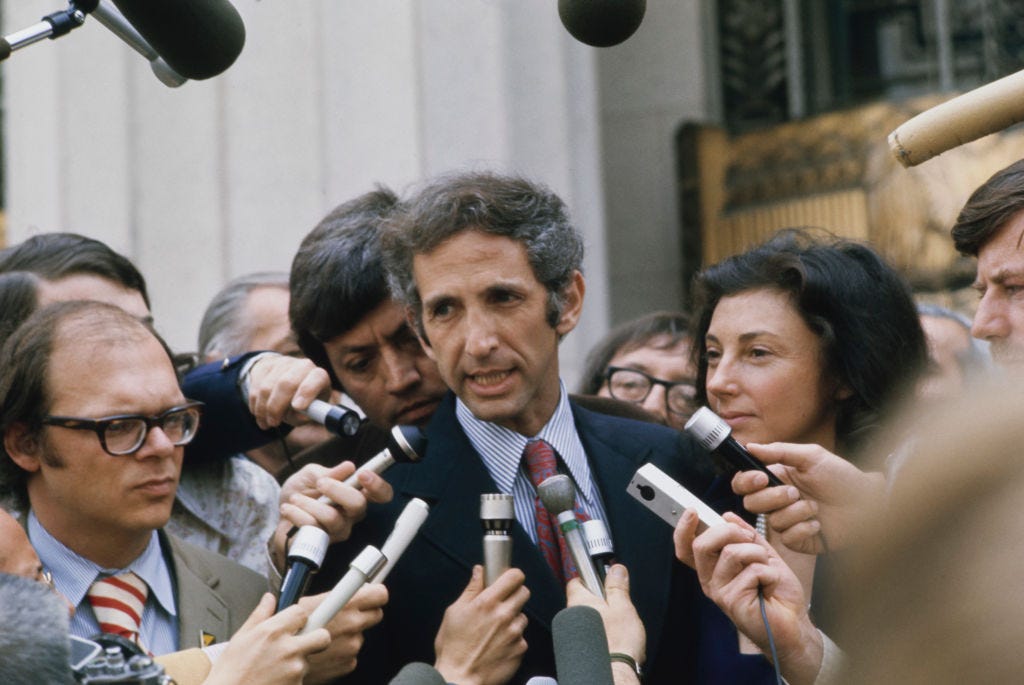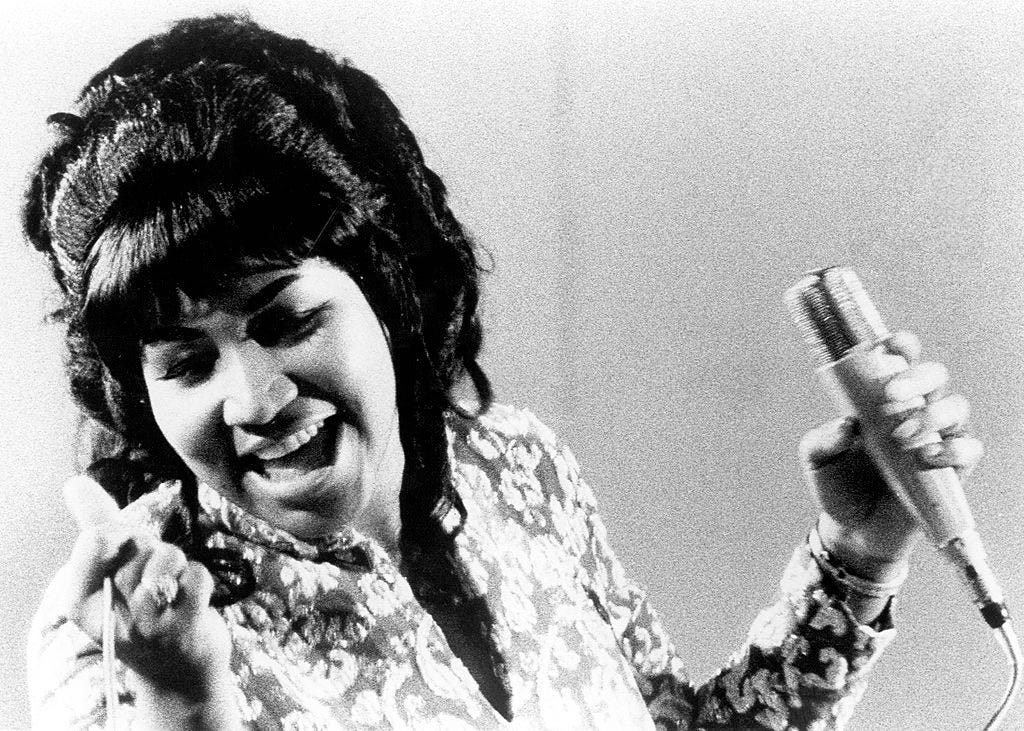It's no coincidence that people trusted the media more in Daniel Ellsberg's day
Can we get it back?
When Daniel Ellsberg, the famous Pentagon Papers leaker, died earlier this month, it hit me hard. That was partly because I had interviewed him in 2017 when I was the Washington Post’s media columnist and he was making an appearance at Georgetown University, so I felt a personal connection. But there were other reasons. One was that I flat-out admired him as someone with moral courage, and because, every once in a while, it’s really possible to meet one of your heroes and not be disappointed. His speech was inspiring and I covered his call for more revelations like those from Edward Snowden and Chelsea Manning in my Post column.
His passing also made me think about the way a brave whistleblower, along with public-spirited journalists, can change the world. Ellsberg’s revelations of the secret and murky history of America’s involvement in the Vietnam War, and the willingness of the New York Times and the Washington Post to publish them, did that.
He later said that his revelations didn’t shorten that awful and pointless war by even a day, but he did something very important nonetheless. He cast light in a very dark corner. He showed us how our government lied to us.
I don’t think it’s a coincidence that the public’s trust in the media was a whole lot higher back in the 1970s, shortly after the Pentagon Papers were published, and shortly after the Post’s investigative reporting about the Watergate scandal was a key factor in bringing down a corrupt president.
Trust was, comparatively, sky-high back then: more than 7 in 10 Americans trusted the press. That’s been on a sharp slide ever since – down, down, down – well below 50 percent, and by some measurements closer to 30.
Of course, it’s not a simple connection. Trust in many institutions – government, education, business – is way down over that five-decade period since Ellsberg was center stage.
But it’s worrisome anyway, because a common basis of facts and reality is a necessity if democracy is going to work. Democracy stands on a foundation of truth. When trust is so low in the messengers, the foundation grows dangerously shaky.
That’s why this podcast will explore the question of whether journalism can save democracy. We’ll also be exploring what it mean to be an engaged citizen in a functioning democracy, and I think you’ll find that beyond just listening and reading, there’s a role for you.
My next podcast guest, Asha Rangappa, a former FBI special agent and a Yale lecturer, has some compelling ideas about what we can all do. They might even change your life for the better. So I hope you’ll listen in when Episode 2 goes live on Wednesday morning.
Two other notes: Very sincere thanks to more than 1,000 people who subscribed to American Crisis over the past week – some for free and some as paying subscribers. Each and every one of you is very much appreciated. I hope to live up to your attention and your trust.
And now, a request that has nothing to do with the intersection of media and democracy: after my young-adult children gave me a turntable and speakers for my birthday a few weeks ago, I’ve been building my collection of vinyl records. I struck it rich when a neighbor gave me my pick of her albums recently. The gold mine included Carol King’s “Tapestry,” Janis Joplin’s “Pearl” — I even scored Aretha Franklin's debut album.
I’d love to get your recommendations. What are your top three choices for albums I should add to my collection? Let me know in the comments here, and tell me what you think about Ellsberg and trust in the media, too.








Best of Bread 🤔
I have to be careful with my suggestions, because my more modern musical tastes can be...eclectic. So I'll go with the classics. The two-album Gladys Knight & The Pips Anthology. Elton John's "Don't Shoot Me, I'm Only The Piano Player (the last piano-driven album before he became a rock star) and Paul McCartney/Wings "Band On The Run."